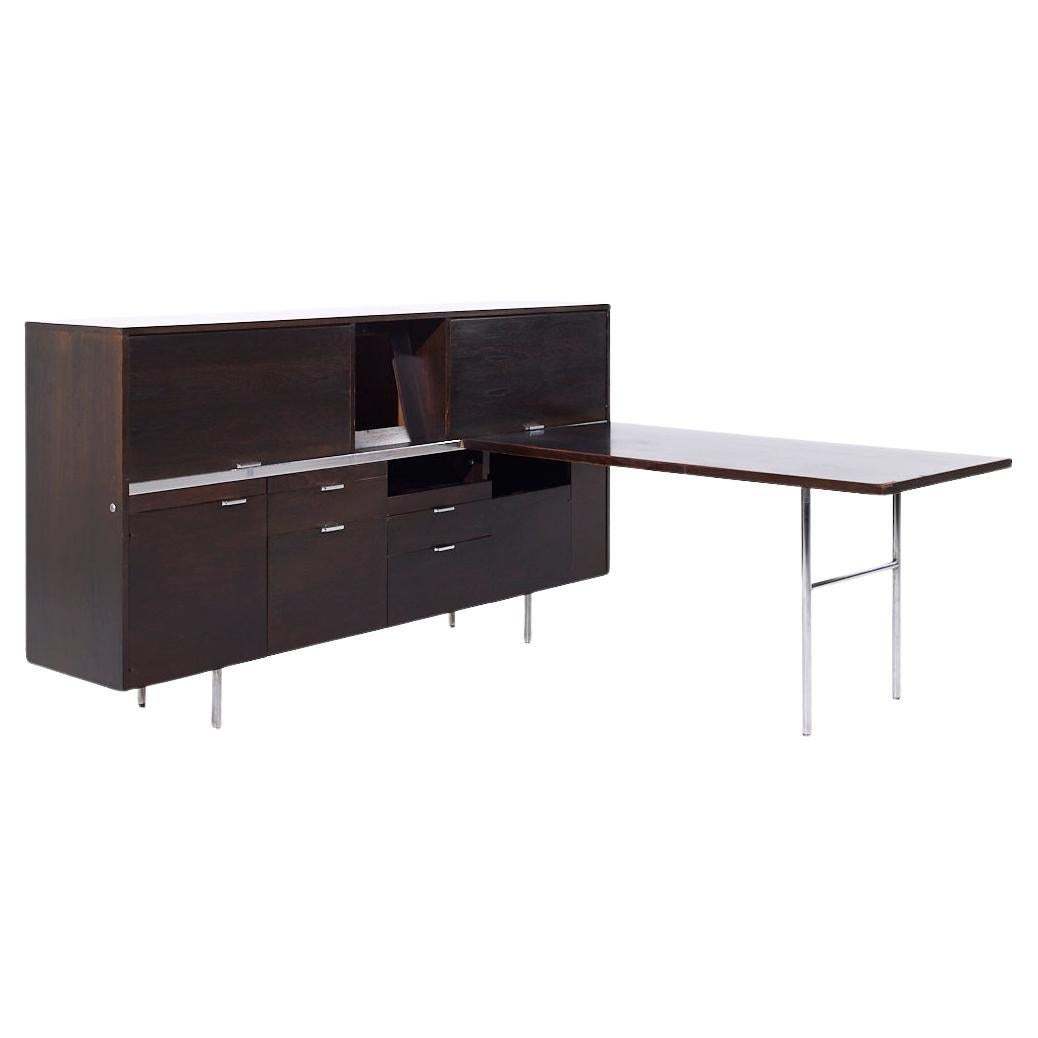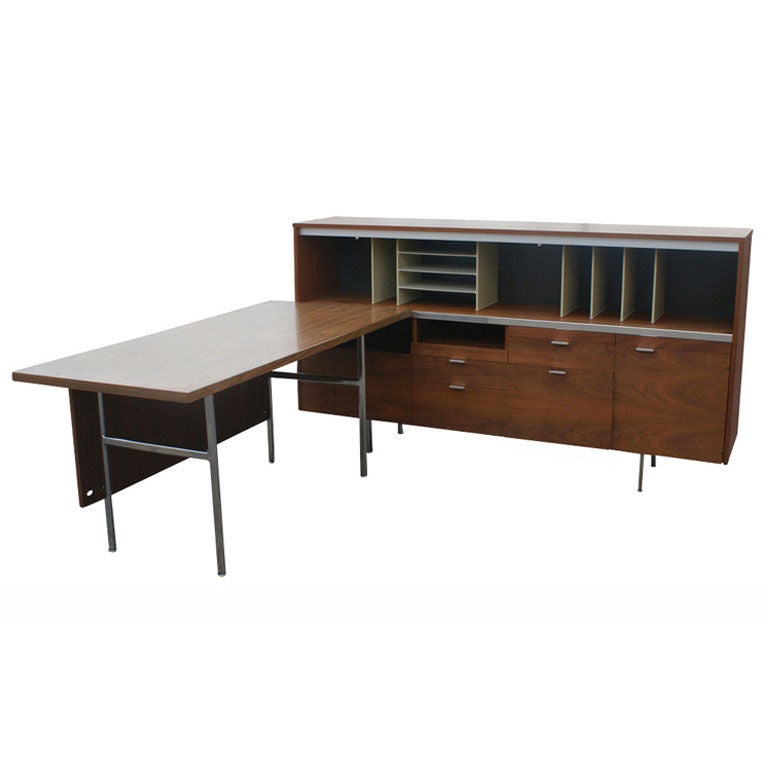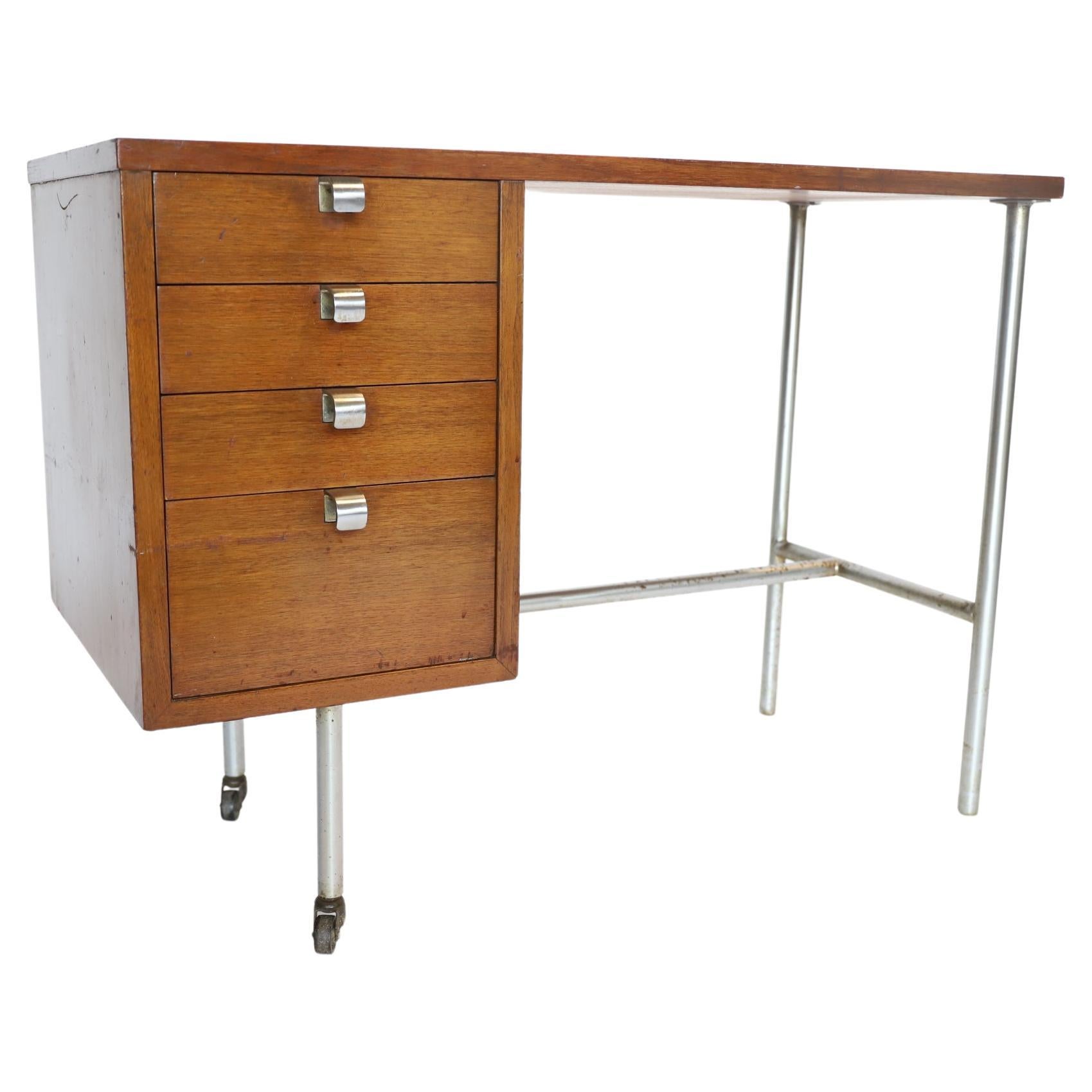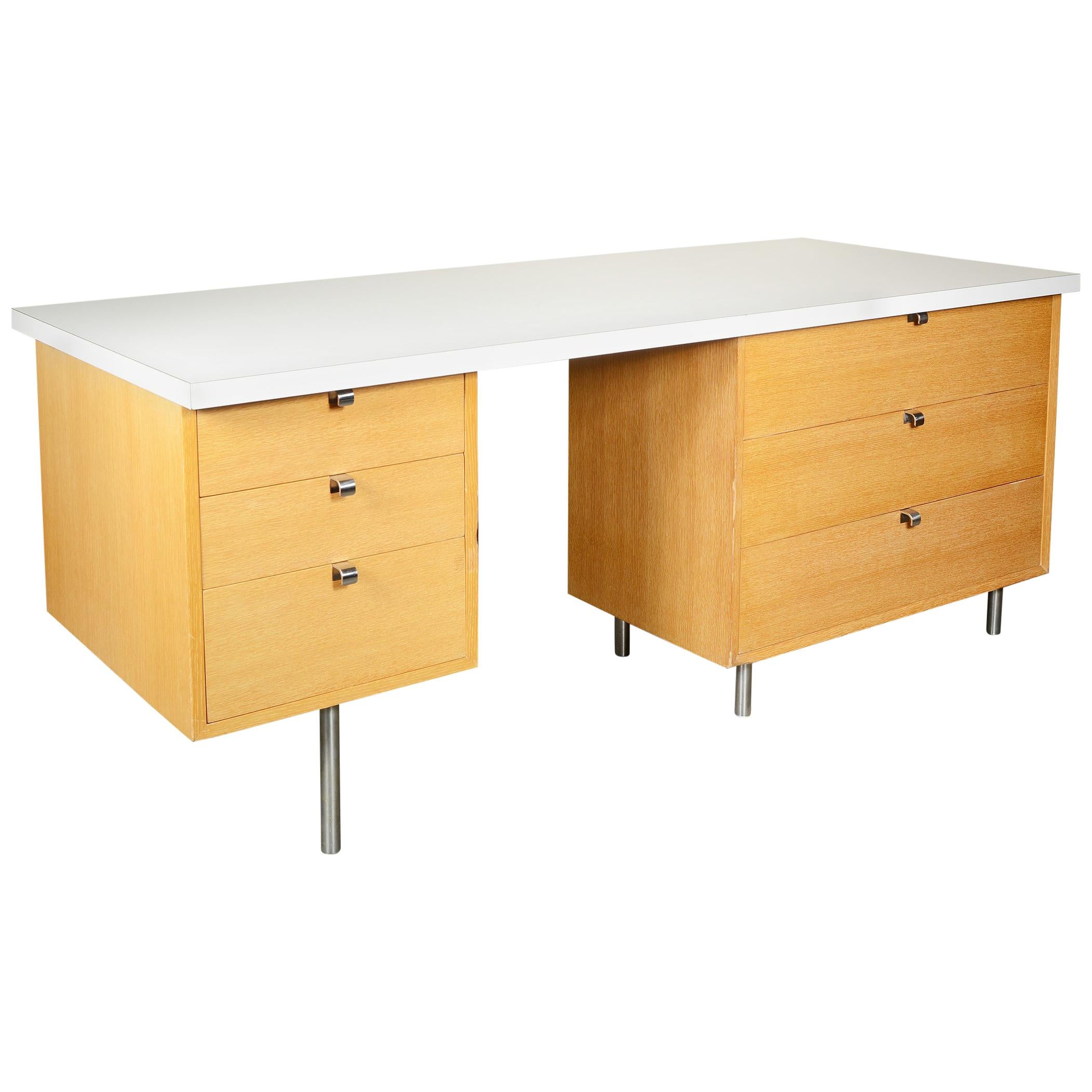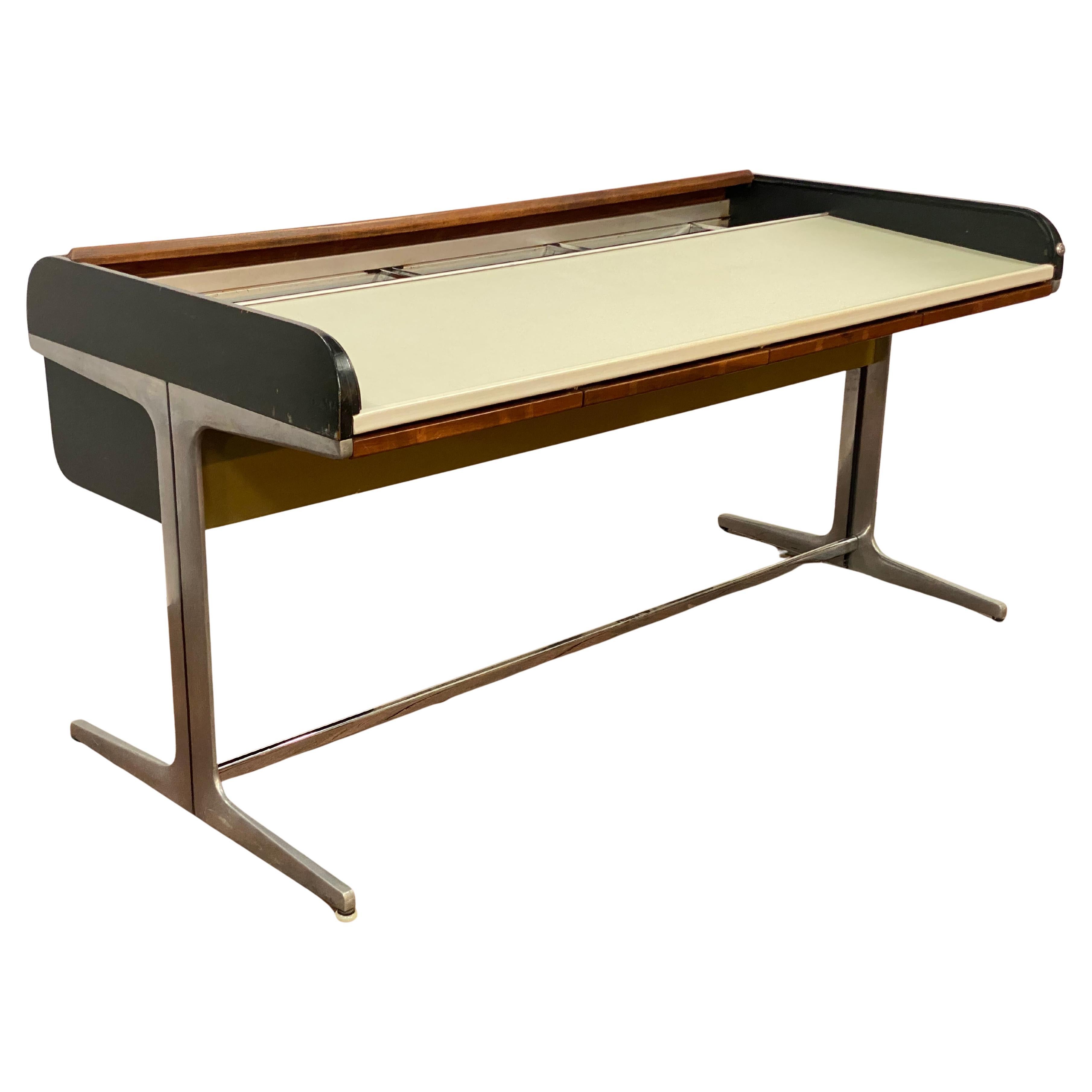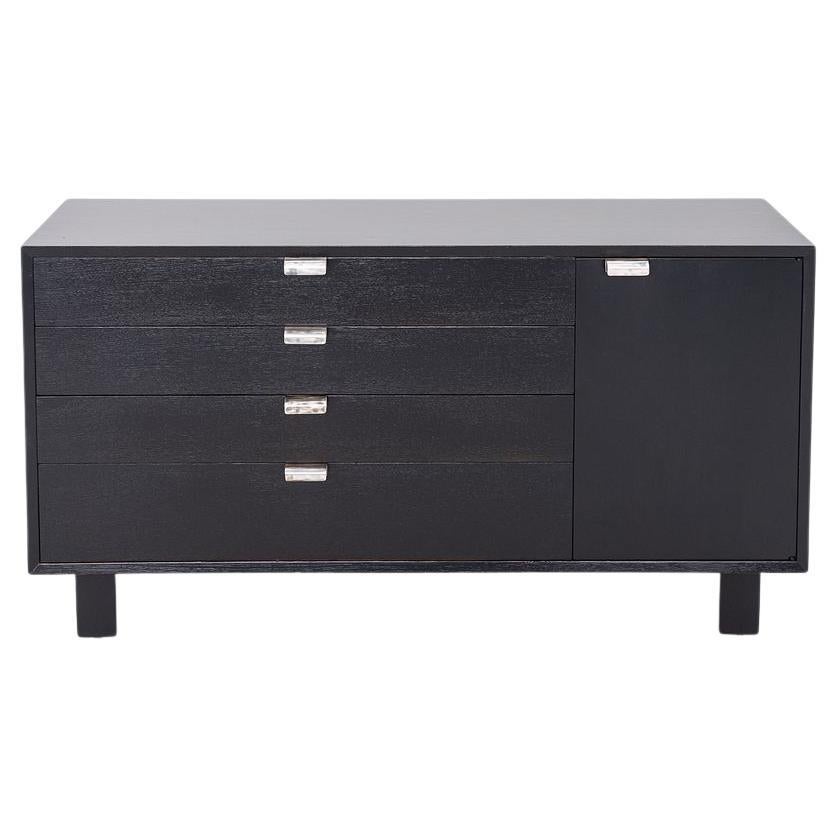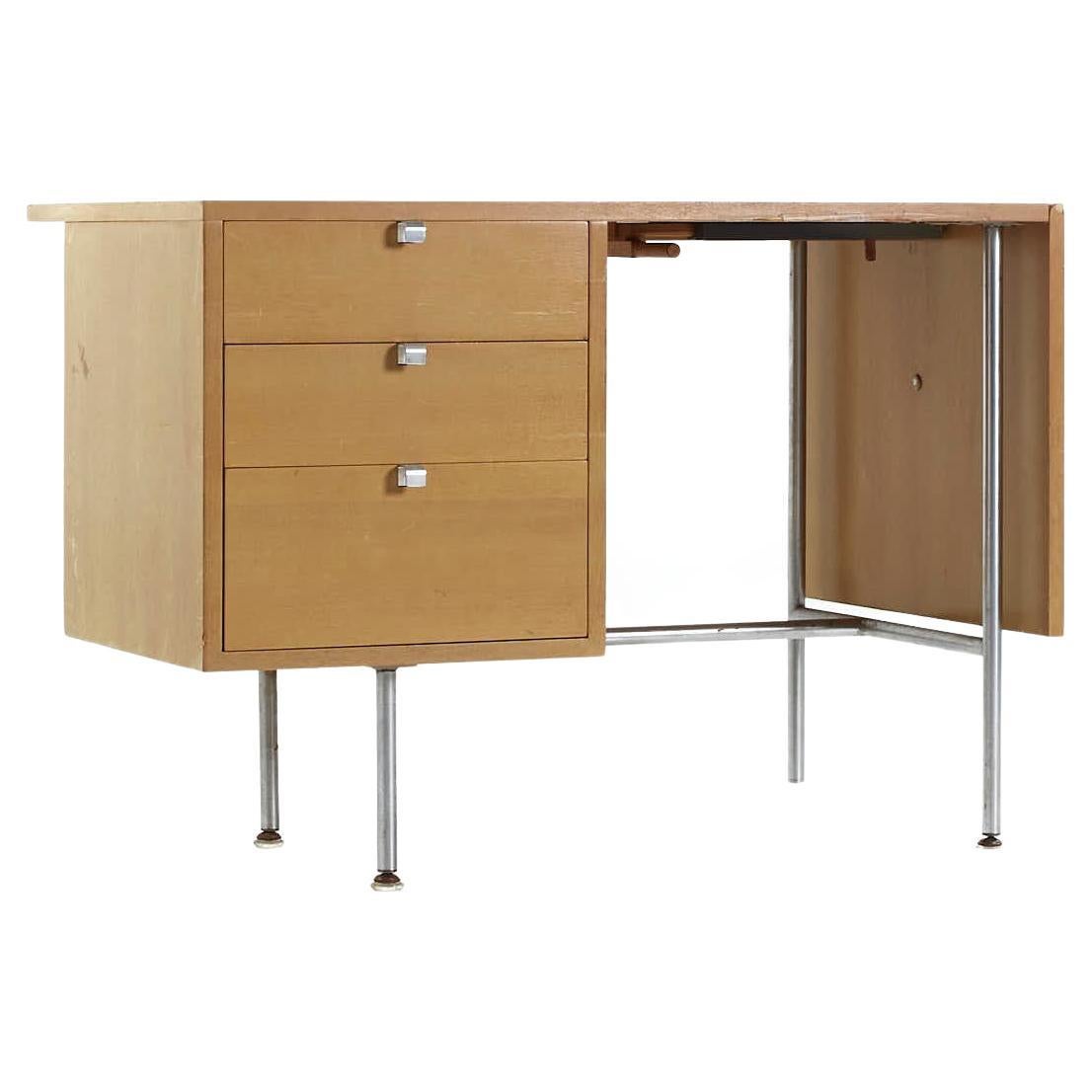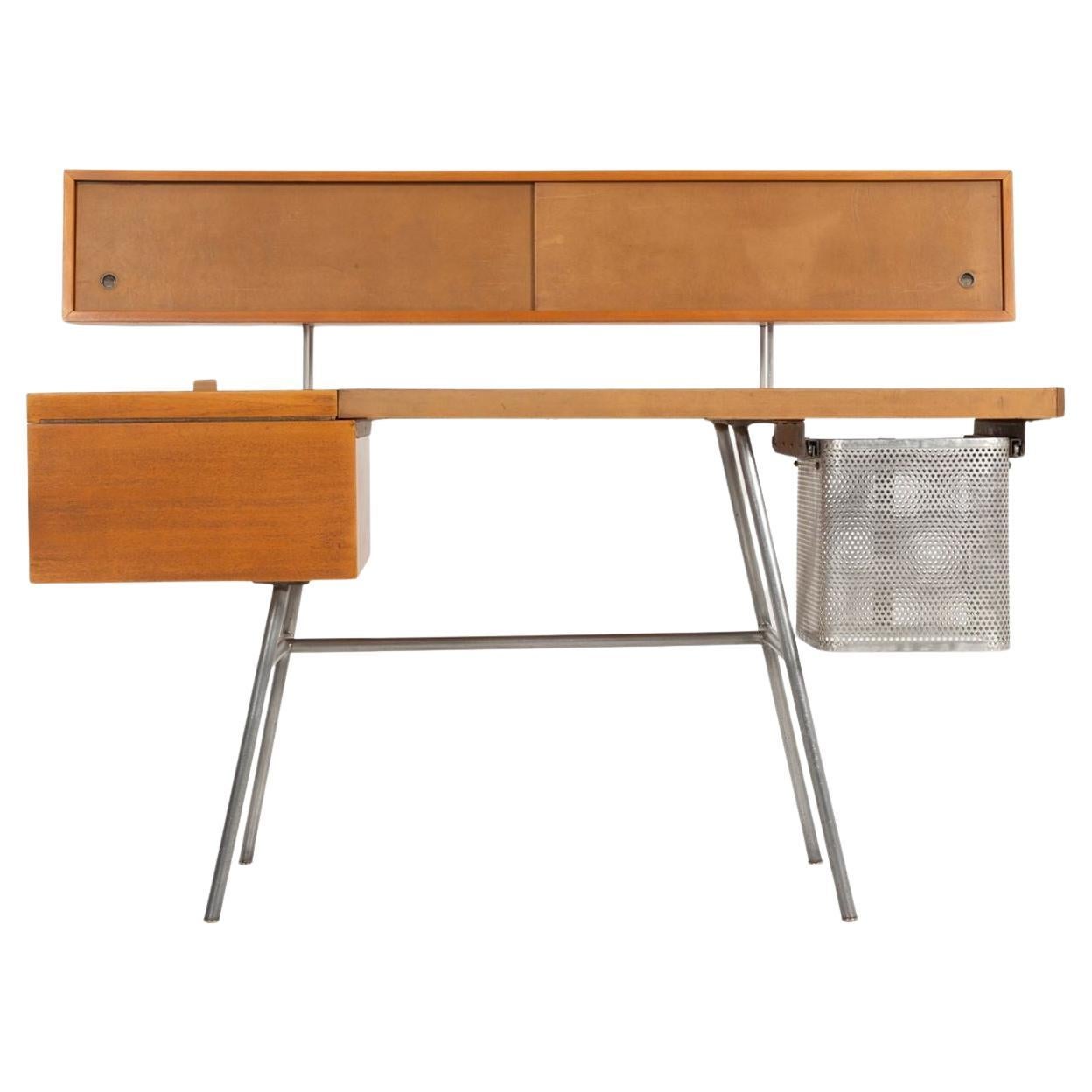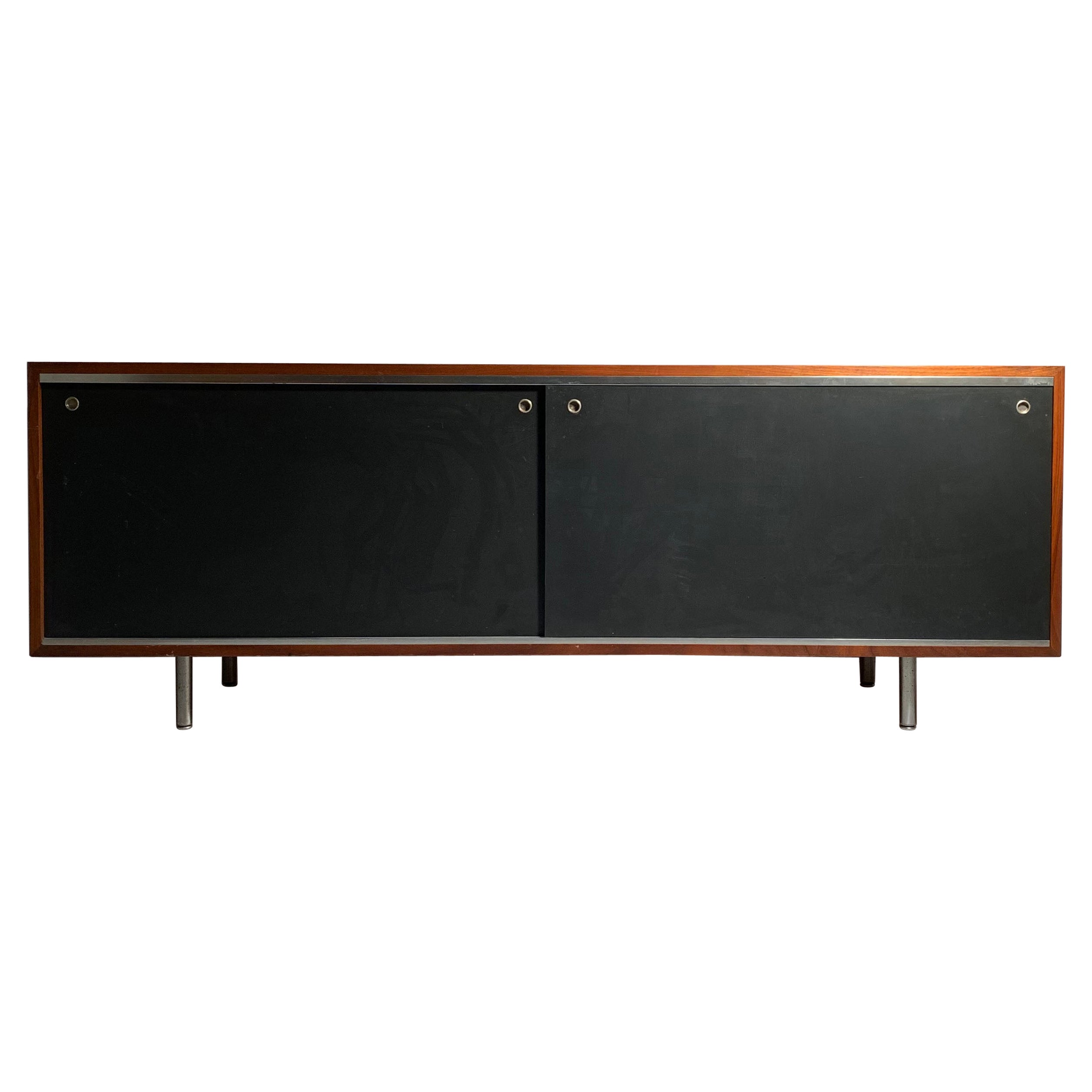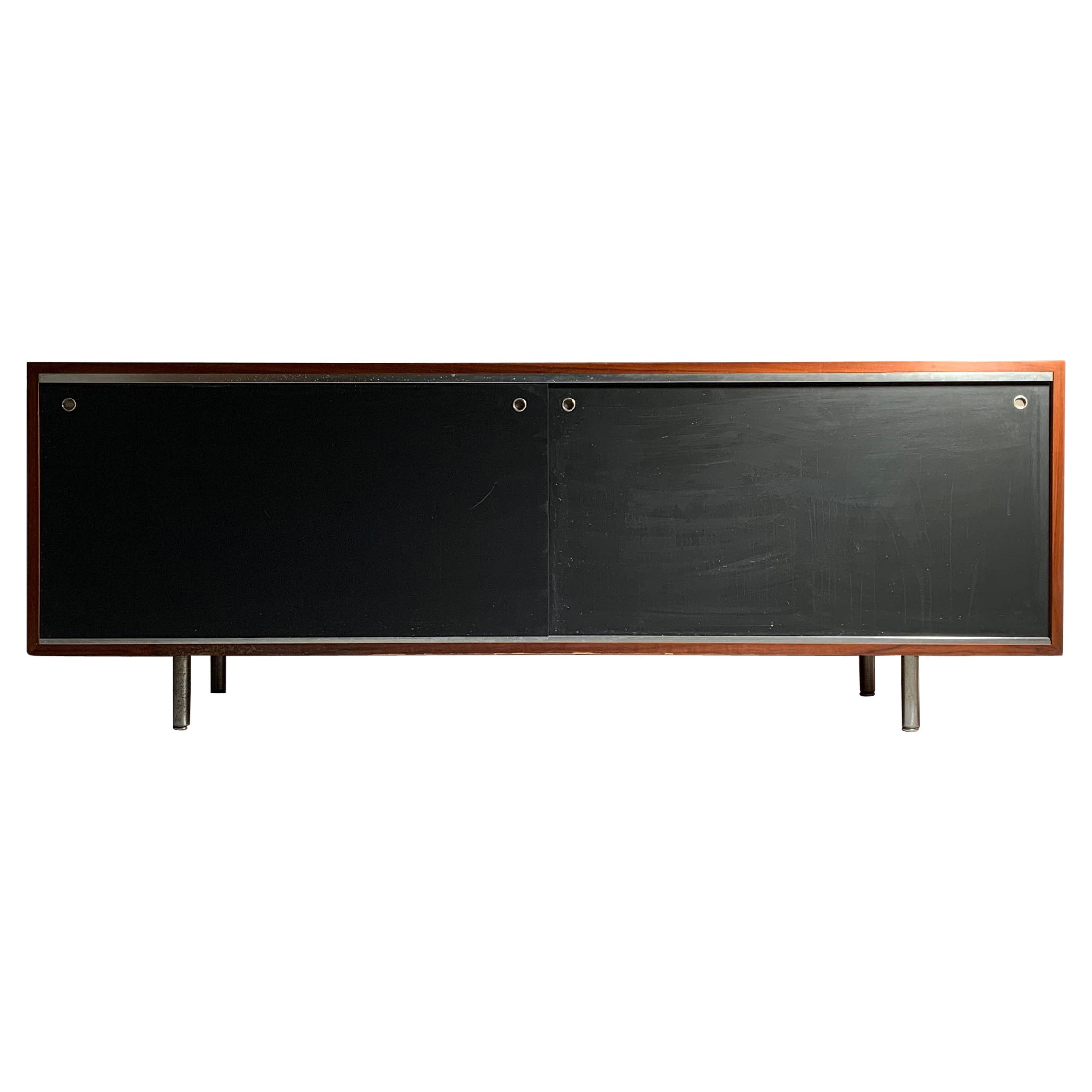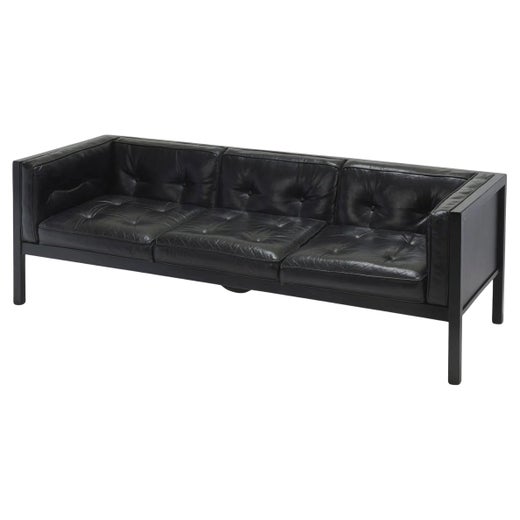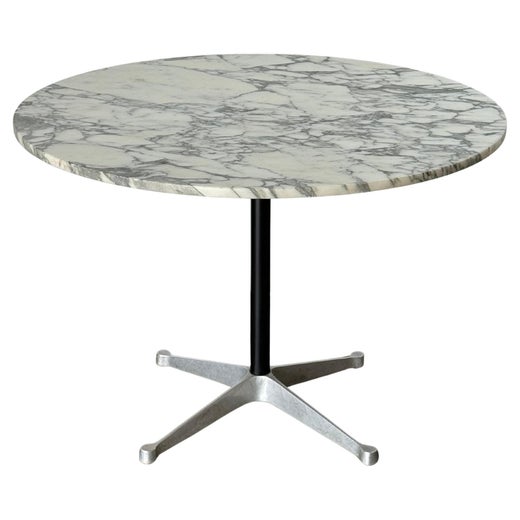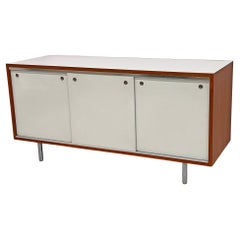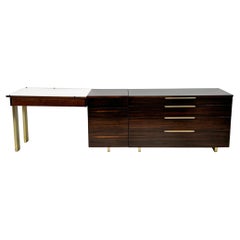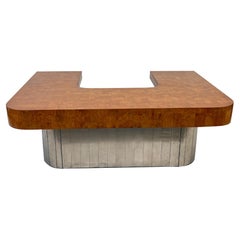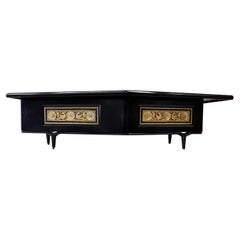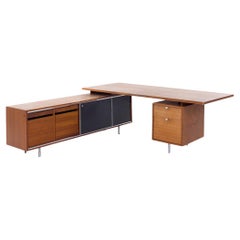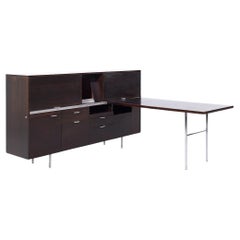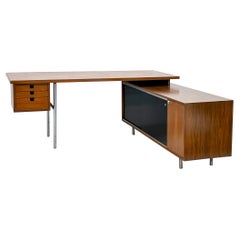
Early George Nelson Eog Executive Desk with Return for Herman Miller, 1950s
View Similar Items
Early George Nelson Eog Executive Desk with Return for Herman Miller, 1950s
About the Item
- Creator:Herman Miller (Manufacturer),George Nelson (Designer)
- Dimensions:Height: 29 in (73.66 cm)Width: 67 in (170.18 cm)Depth: 67 in (170.18 cm)
- Style:Mid-Century Modern (Of the Period)
- Materials and Techniques:
- Place of Origin:
- Period:
- Date of Manufacture:circa 1950s
- Condition:Refinished. Wear consistent with age and use. This piece has been refinished, but sustained a small mar on the desktop when we were showing the piece at the Palm Springs Modernism show. Please see detailed photo.
- Seller Location:Culver City, CA
- Reference Number:1stDibs: LU1139233174862
George Nelson
Architect, designer, and writer George Nelson was a central figure in the mid-century American modernist design movement; and his thoughts influenced not only the furniture we live with, but also how we live.
Nelson came to design via journalism and literature. Upon receiving his bachelor’s degree in architecture from Yale in 1931, he won the Prix de Rome fellowship, and spent his time in Europe writing magazine articles that helped bring stateside recognition to Ludwig Mies van der Rohe, Gio Ponti, Le Corbusier and other canonical modernist architects.
In the 1940s, Nelson wrote texts that suggested such now-commonplace ideas as open-plan houses, storage walls and family rooms. D.J. De Pree, the owner of the furniture maker Herman Miller, was so impressed by Nelson that in 1944 — following the sudden death of Gilbert Rohde, who had introduced the firm to modern design in the 1930s — he invited Nelson to join the company as its design director. There Nelson’s curatorial design talents came to the fore.
To Herman Miller he brought such eminent creators as Charles and Ray Eames, Isamu Noguchi, and the textile and furniture designer Alexander Girard. Thanks to a clever contract, at the same time as he directed Herman Miller he formed a New York design company, George Nelson & Associates, that sold furniture designs to the Michigan firm. Nelson's studio also sold designs for clocks to the Howard Miller Clock Company, a manufacturer that was initially part of Herman Miller before it became an offshoot that was helmed by Howard Miller, D.J. De Pree's brother-in-law.
Nelson’s New York team of designers (who were rarely individually credited) would create such iconic pieces as the Marshmallow sofa, the Coconut chair, the Ball clock, the Bubble lamp series and the many cabinets and beds that comprise the sleek Thin-Edge line.
For dedicated collectors, as well as for interior designers who look beyond “the look,” there is a “cool factor” inherent to vintage pieces from George Nelson and others. Nelson was in on it from the start, and it’s valuable to have a piece that was there with him.
But still, as is evident from the offerings from dealers on 1stDibs, in any of the designs, in any iteration whose manufacture Nelson oversaw and encouraged, there are shining elements of lightness, elegance, sophistication — and a little bit of swagger. George Nelson felt confident in his ideas about design and didn’t mind letting the world know.
Herman Miller
No other business of its kind did more than the Herman Miller Furniture Company to introduce modern design into American homes. Working with legendary designers such as Charles and Ray Eames, George Nelson and Alexander Girard, the Zeeland, Michigan-based firm fostered some of the boldest expressions of what we now call mid-century modern style. In doing so, Herman Miller produced some of the most beautiful, iconic and, one can even say, noblest chairs, sofas, tables and other furniture ever.
Founded in 1923, Herman Miller was originally known for grand historicist bedroom suites: heavily ornamented wood furniture that appealed to a high-minded, wealthier clientele. The company — named for its chief financial backer — began to suffer in the early 1930s as the Great Depression hit, and D.J. De Pree, the company’s CEO, feared bankruptcy. In 1932, aid came in the form of Gilbert Rohde, a self-taught furniture designer who had traveled widely in Europe, absorbing details of the Art Deco movement and other modernist influences. After persuading De Pree that the growing middle class required smaller, lighter household furnishings, Rohde set a new course for Herman Miller, creating sleek chairs, tables and cabinetry that were the essence of the Streamline Moderne style.
Rohde died suddenly in 1944. The following year, De Pree turned to George Nelson, an architect who had written widely about modern furniture design. Under Nelson’s leadership, Herman Miller would embrace new technologies and materials and audacious biomorphic forms.
Some of the pieces the company produced are now emblems of 20th century American design, including the Eames lounge chair and ottoman and Nelson’s Marshmallow sofa and Coconut chair. Such instantly recognizable furnishings have become timeless — staples of a modernist décor; striking, offbeat notes in traditional environments.
Find a range of vintage Herman Miller office chairs, desks, coffee tables and other furniture on 1stDibs.
More From This Seller
View AllVintage 1960s American Mid-Century Modern Credenzas
Aluminum
Vintage 1950s American Mid-Century Modern Dressers
Brass
Vintage 1970s American Mid-Century Modern Desks
Steel
Vintage 1960s American Mid-Century Modern Desks
Walnut
Vintage 1950s Danish Mid-Century Modern Credenzas
Teak
Vintage 1950s Mid-Century Modern Credenzas
Mahogany, Walnut
You May Also Like
Vintage 1970s American Mid-Century Modern Desks
Aluminum, Steel
Vintage 1970s American Mid-Century Modern Desks
Chrome
Vintage 1960s American Credenzas
Laminate, Walnut
Vintage 1960s American Mid-Century Modern Desks
Metal
Vintage 1950s American Mid-Century Modern Desks
Chrome
Vintage 1950s American Modern Credenzas
Steel
Recently Viewed
View AllRead More
A Guide to Herman Miller’s Most Iconic Furniture
The prolific manufacturer has partnered with many of the world’s top designers since opening its doors in 1923. Here are some of the company’s greatest hits, which helped transform the American home and office.
Kule and Forsyth Give Iconic Furniture a Bold Makeover with Stripes
Maggie and Anne Genovese, of Forsyth, teamed up with fashion designer Nikki Kule to reimagine some classic pieces.

